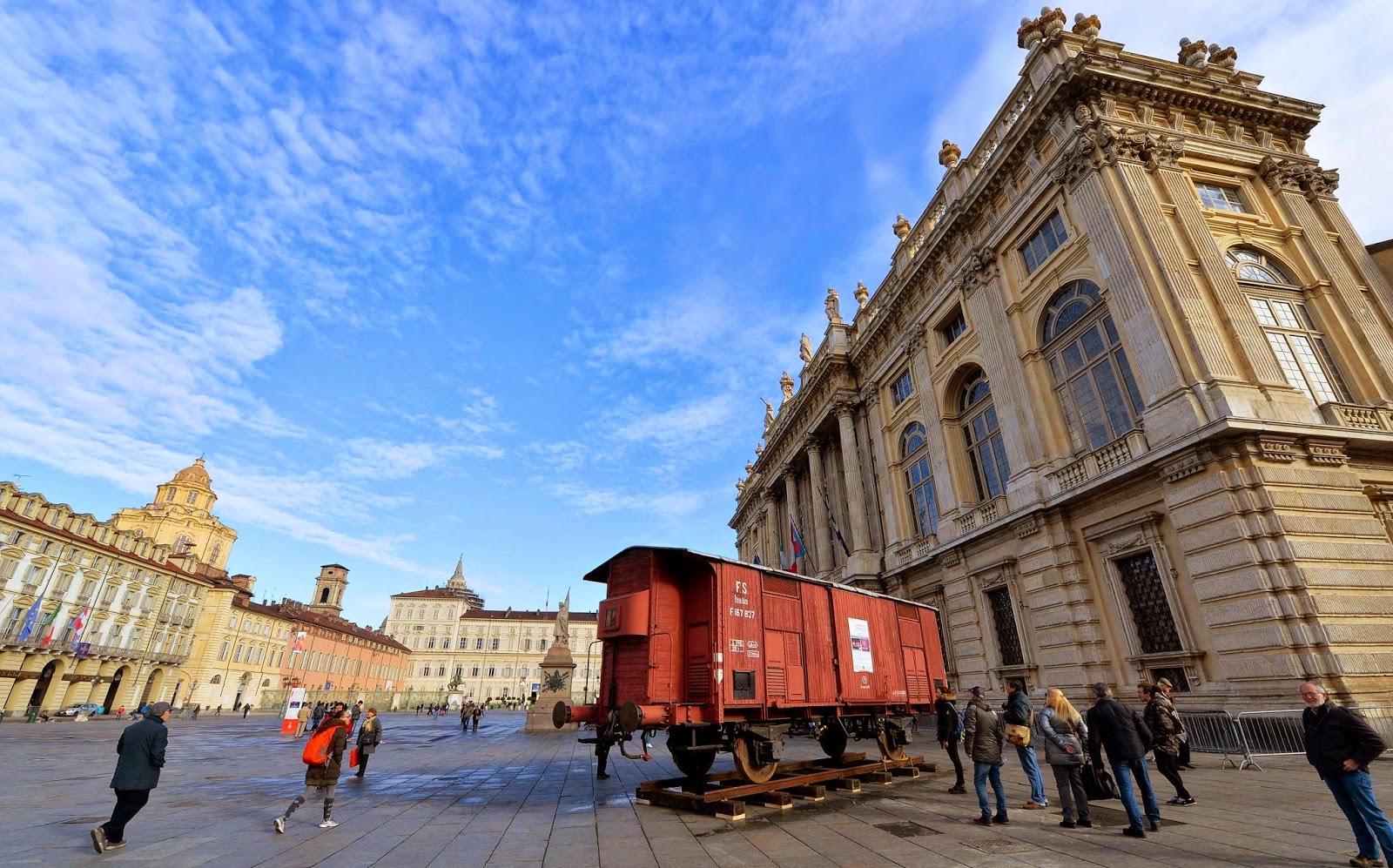Nessuno sposti quel treno - Nobody move that train
C’è una disgustosa polemica per il vagone merci posto
in Piazza Castello a Torino in occasione della mostra I mondi di Primo Levi: è stato definito un baraccone che disturba l'estetica della piazza...
Si da il caso che
quel treno vuole ricordare a chi non vuole avere memoria
tutti quei treni che
hanno ucciso persone, esseri umani.
Chi definisce quel treno un baraccone
non solo non ha memoria, non ha neppure un barlume di sensibilità
e neanche si
interessa a quello che accade nel mondo
in cui vive
perché secondo me
quel treno non solo sta lì a ricordare quello che accadde tanti anni fa
ma quello che è
continuato ad accadere dopo e sta continuando ad accadere oggi.
There is a disgusting controversy for freight wagon placed in Piazza Castello in Turin for the exhibition
Primo Levi’s worlds: it has
been called shambles that disturb the aesthetics of the square...
As it happens that train wants to remind to those
who don’t want to have memory
all that trains that killed people, human beings.
Who calls that train a "shambles" don't only have not memory, they don’t ever have a
glimmer of sensitivity
and don’t even care about what happens in the world
in which they live
because I think that train is not only there to
remember what happened so many years ago
but what has continued to happen in subsequent years
and still is happening.
I mondi di Primo Levi. Una strenua chiarezza
Primo Levi’s worlds
As part of the celebrations for the Day of Memory
and on the occasion of the 70th anniversary of the liberation of Auschwitz the
idea was born of narrating the writer and chemist, a witness of the Holocaust,
starting from his tale Carbonio, included in his collection of short stories
The Periodic Table. The exhibition in the Medieval Court of Palazzo Madama,
from January 22nd to April 6th, is organised in collaboration with the Primo
Levi International Studies Centre.
Primo Levi
Italiano
English
Primo Levi: Se questo è un uomo - If this is a man
(Versione originale in Italiano & English version by Robert E.
Williams)
Voi che vivete
sicuri
nelle vostre
tiepide case,
voi che trovate
tornando a sera
il cibo caldo e i
visi amici:
considerate se
questo è un uomo,
che lavora nel
fango,
che non conosce
pace,
che lotta per
mezzo pane,
che muore per un
sì o per un no.
Considerate se
questa è una donna
senza capelli e
senza nome,
senza più forza
di ricordare,
vuoti gli occhi e
freddo il grembo
come una rana
d’inverno.
Meditate che
questo è stato:
vi comando queste
parole.
Scolpitele nel
vostro cuore,
stando in casa
andando per via,
coricandovi
alzandovi;
ripetetele ai
vostri figli.
O vi si sfaccia
la casa,
la malattia vi
impedisca
i vostri nati
torcano il viso da voi.
You who live safe
In your warm houses;
You who find on returning in the evening
Hot food and friendly faces:
Consider if this is a man
Who works in the mud
Who knows no peace
Who fights for a bit of bread
Who dies because of a yes and because of a no
Consider if this is a woman,
Without hair and without name
Without enough strength to remember
Vacant eyes and cold womb
Like a frog in the winter:
Reflect on the fact that this has happened:
These words I commend to you:
Inscribe them on your heart
When staying at home and going out,
Going to bed and rising up;
Repeat them to your children:
Or may your house fall down,
Illness bar your way,
Your loved ones turn away from you.


